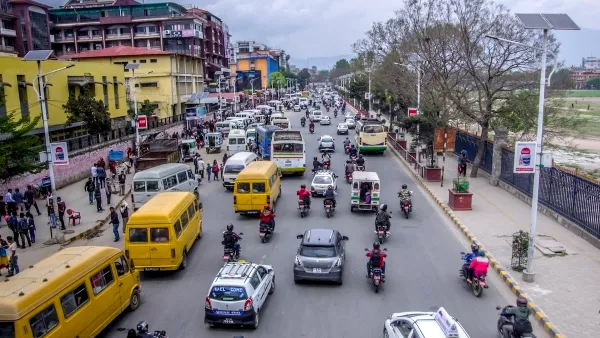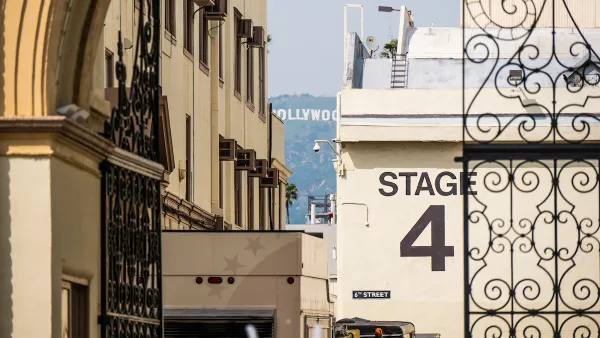Among this year’s Oscar-nominated films, only The Wild Robot passed the Climate Reality Check, a test measuring climate change representation in storytelling, highlighting the ongoing lack of climate awareness in mainstream Hollywood films.

The Climate Reality Check, a tool inspired by the Bechdel-Wallace Test, evaluates the visibility of climate change in films by determining whether a movie acknowledges climate change and whether a character within the story recognizes it. In its second annual report, climate storytelling consultancy Good Energy analyzed this year’s Academy Award-nominated films, finding that of the 30 nominated feature films, only 11 met the criteria of being set on Earth in the present, recent past, or near future. As reported by Kirsten Chuba, among these, only Universal’s animated film The Wild Robot passed the test, making it the only Oscar-nominated film to explicitly engage with climate change.
Good Energy CEO Anna Jane Joyner praised The Wild Robot for its artistry and emotional depth, calling it “an enchanting depiction of life in the age of climate change” that explores resilience, community, and adaptation. While other films, such as Flow, Kingdom of the Planet of the Apes, and Dune: Part Two, featured environmental themes, they did not meet the test's specific requirements. The report highlights how climate storytelling in film has evolved beyond stereotypical portrayals of superheroes or eco-villains, yet still remains largely underrepresented in mainstream Hollywood productions.
Launched in 2024, the Climate Reality Check aims to serve as a tool for filmmakers, researchers, and audiences to assess and advocate for more accurate depictions of climate issues in storytelling. The inaugural report found that films like Barbie, Mission: Impossible – Dead Reckoning Part One, and Nyad passed the test last year, showing that while progress has been made, climate change remains an overlooked topic in cinema. The hope is that as climate-related challenges become more urgent, more filmmakers will integrate these realities into their narratives, ensuring that the stories on screen better reflect the world we live in.
FULL STORY: ‘The Wild Robot’ Is This Year’s Only Oscar Nominee to Pass the Bechdel Test for Climate Change

Planetizen Federal Action Tracker
A weekly monitor of how Trump’s orders and actions are impacting planners and planning in America.

Congressman Proposes Bill to Rename DC Metro “Trump Train”
The Make Autorail Great Again Act would withhold federal funding to the system until the Washington Metropolitan Area Transit Authority (WMATA), rebrands as the Washington Metropolitan Authority for Greater Access (WMAGA).

The Simple Legislative Tool Transforming Vacant Downtowns
In California, Michigan and Georgia, an easy win is bringing dollars — and delight — back to city centers.

The States Losing Rural Delivery Rooms at an Alarming Pace
In some states, as few as 9% of rural hospitals still deliver babies. As a result, rising pre-term births, no adequate pre-term care and harrowing close calls are a growing reality.

The Small South Asian Republic Going all in on EVs
Thanks to one simple policy change less than five years ago, 65% of new cars in this Himalayan country are now electric.

DC Backpedals on Bike Lane Protection, Swaps Barriers for Paint
Citing aesthetic concerns, the city is removing the concrete barriers and flexposts that once separated Arizona Avenue cyclists from motor vehicles.
Urban Design for Planners 1: Software Tools
This six-course series explores essential urban design concepts using open source software and equips planners with the tools they need to participate fully in the urban design process.
Planning for Universal Design
Learn the tools for implementing Universal Design in planning regulations.
Smith Gee Studio
City of Charlotte
City of Camden Redevelopment Agency
City of Astoria
Transportation Research & Education Center (TREC) at Portland State University
US High Speed Rail Association
City of Camden Redevelopment Agency
Municipality of Princeton (NJ)





























